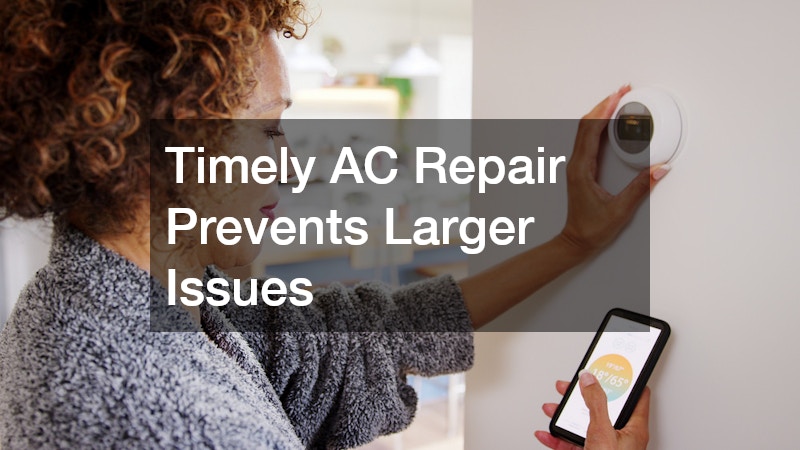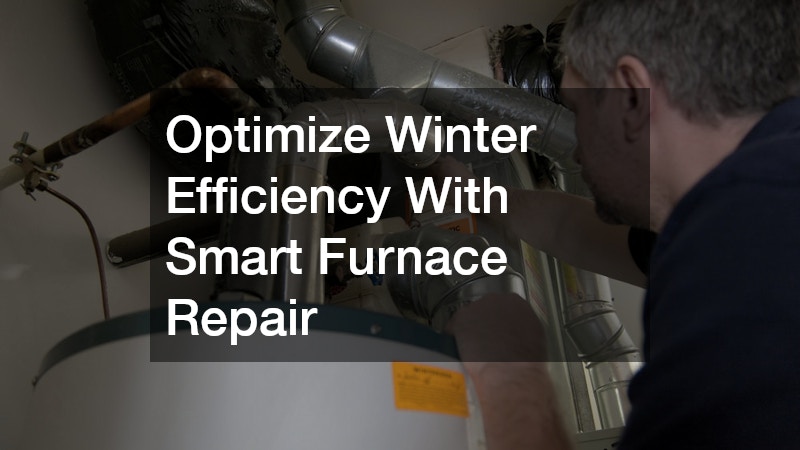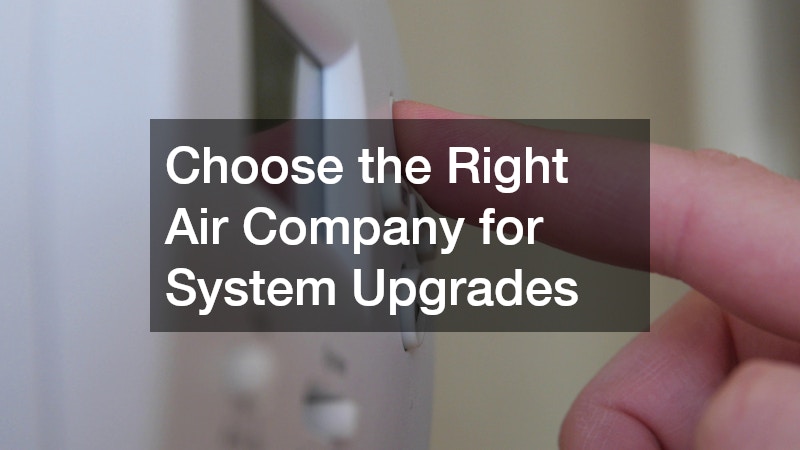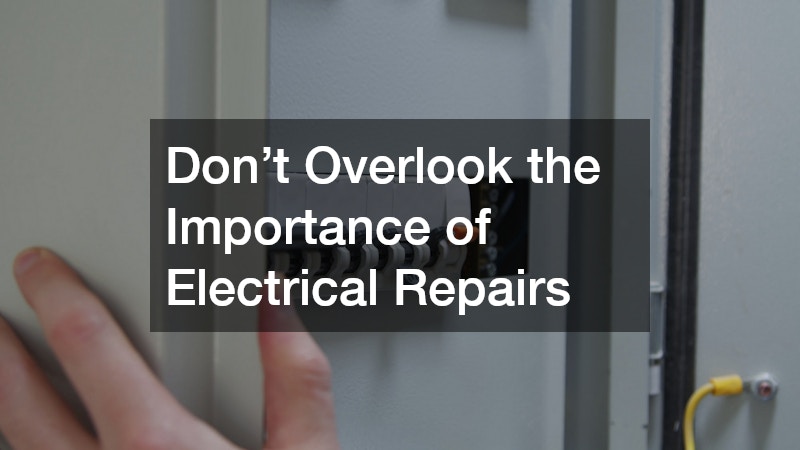How to Maximize HVAC Efficiency in Your Home
Maximizing HVAC efficiency isn’t just about comfort—it’s also about energy savings, sustainability, and preserving the life span of your equipment. An efficient heating, ventilation, and air conditioning system can reduce monthly utility bills while improving indoor air quality and climate control. Whether you’re using a high-tech solution or a conventional air conditioning system, there are numerous strategies homeowners can take to enhance performance without replacing the entire setup. These include tuning your thermostat settings, scheduling regular inspections, sealing air leaks, and investing in smarter infrastructure. A balanced system can mean the difference between an overworked HVAC unit and one that runs smoothly for years. By looking at the key components that affect HVAC efficiency, including insulation, ductwork, filters, electrical systems, and structural conditions like the roof, homeowners can better understand how to improve comfort and savings. While upgrades like smart thermostats and zoning controls offer benefits, fundamental practices such as consistent maintenance, proper installation, and timely repairs are even more essential. Whether you rely on a modern ductless unit or an air conditioning system, this guide will walk you through the critical areas that influence HVAC efficiency—and how to optimize them effectively.
Start With a Proper HVAC Installation for Long-Term Efficiency
The efficiency of any HVAC system begins with how it’s installed. A poorly executed HVAC install can lead to issues such as airflow imbalance, reduced equipment lifespan, and sky-high utility bills. Proper sizing is especially important; an oversized unit will cycle on and off too frequently, wasting energy, while an undersized system will strain to keep up, leading to early failure. Duct design, refrigerant levels, airflow balancing, and thermostat placement must all be tailored to your home’s layout and needs. Even the most advanced air conditioning system can perform poorly if installation is flawed. That’s why professional HVAC installers conduct load calculations and airflow analyses to ensure the system matches the space it’s meant to serve. Choosing a certified contractor who follows industry standards not only ensures peak performance but also makes future maintenance simpler and more effective. Furthermore, a quality install sets the stage for accurate energy usage predictions and reduces the need for major upgrades down the road. If you’re considering a new system or replacing an old one, investing in a top-tier HVAC install is one of the most critical steps in maximizing HVAC efficiency and getting the most from your energy dollars.
Timely AC Repair Prevents Larger Issues

One of the fastest ways to sabotage HVAC efficiency is by ignoring small issues that require air conditioning repair. From low refrigerant levels to faulty fans or frozen coils, minor malfunctions can quickly snowball into major system failures. If your conventional air conditioning system is short-cycling, emitting unusual noises, or not cooling evenly, these could be signs that something is off internally. The longer you delay addressing the issue, the harder your system must work, burning more energy and increasing the risk of permanent damage. Quick action on repairs ensures that the system continues running within its optimal range. Certified HVAC technicians have diagnostic tools that allow them to pinpoint problems and correct them without unnecessary replacements. Not only does this keep energy costs down, but it also extends the life of your equipment. Regular attention to repair needs can also protect other connected systems, like thermostats and ductwork, from developing secondary issues. In addition, servicing your unit with professional air conditioning repair ensures proper airflow and refrigerant balance, both of which are vital for air conditioning system efficiency. The takeaway: don’t wait for a total breakdown to act. A fast fix saves money and energy.
Keep Your System in Shape With Routine Repairs
Even the best HVAC system won’t stay efficient without occasional attention. Scheduling HVAC repairs when you notice signs of wear, age, or performance decline can make a substantial difference in your home’s climate control and energy usage. Components like motors, capacitors, and sensors degrade over time. If not replaced or recalibrated, these worn parts can lead to system inefficiencies or complete failure. Routine HVAC repairs—such as fixing airflow issues, sealing duct leaks, and recalibrating thermostats—are essential to maintaining the overall performance of a conventional air conditioning system. Additionally, seasonal demands mean that your system operates under varying loads throughout the year, making it more vulnerable to specific wear patterns. By catching and addressing small issues promptly, homeowners can prevent expensive emergency services later on. Regular repairs also keep your indoor air quality in check, since faulty equipment can circulate dust, mold, or allergens throughout the home. A proactive repair schedule aligned with professional recommendations ensures the system remains responsive and cost-effective. Efficiency isn’t just about upgrades or replacements—it’s about consistency, and the most consistent systems are those that are well-maintained through reliable, ongoing HVAC repairs.
Optimize Winter Efficiency With Smart Furnace Repair

HVAC efficiency isn’t only about air conditioning—it includes your heating system as well. An underperforming furnace can undermine your energy savings just as quickly as a faulty A/C unit. Regular furnace repair is crucial to keeping your heating system in top shape, especially before the cold season begins. Cracked heat exchangers, faulty igniters, or malfunctioning thermostats can lead to uneven heating or complete system shutdowns. What’s more, if your furnace is part of a dual-purpose air conditioning system, inefficiencies in one part will affect the other. Timely furnace repairs can ensure safe and efficient operation, reduce carbon emissions, and lower heating bills. Carbon monoxide leaks are also a risk with poorly maintained furnaces, making professional inspections a safety necessity. Heating systems tend to be out of sight and out of mind until temperatures drop, but the key to maximizing HVAC efficiency is consistency across both heating and cooling functions. Even if your furnace is older, repairs and tune-ups can keep it operating smoothly until a replacement is truly necessary. With a properly functioning furnace, your HVAC system remains balanced year-round, enhancing the performance and longevity of your overall setup.
Hire an HVAC Contractor for Personalized Service
One of the most effective ways to ensure long-term efficiency in your HVAC system is by hiring a local HVAC contractor with a strong reputation and understanding of regional climate conditions. Unlike large, generalized service providers, local experts are better equipped to tailor solutions to your area’s unique weather patterns, building codes, and energy regulations. They’re more accessible for follow-up appointments, and they tend to offer more personalized service, which is critical when maintaining or upgrading a conventional air conditioning system. A trusted local HVAC contractor can assess your current setup, recommend efficiency improvements, and identify problem areas before they become costly issues. Because they’re nearby, they can provide faster response times for maintenance and emergencies alike. They’re also more likely to be invested in their community, leading to better customer service and higher accountability. Additionally, local contractors often work with local utility companies, offering rebates or incentive programs for efficiency upgrades. Whether you need a new install, seasonal maintenance, or targeted repairs, partnering with a reliable local HVAC contractor ensures that your HVAC system gets the specialized care it needs to run efficiently all year long.
Choose the Right Air Company for System Upgrades

Selecting a reputable air conditioning company is essential when making upgrades or replacements to your cooling system. These professionals provide expert guidance on whether your current conventional air conditioning system needs an upgrade, repair, or full replacement. When energy bills start creeping up or your unit struggles to cool evenly, it’s time to consider whether a newer, more efficient system could better serve your home. A knowledgeable air conditioning company can evaluate your home’s insulation, ductwork, and air volume needs before recommending a tailored solution. They can also introduce you to options like energy-efficient units with higher SEER ratings, zoning systems, or smart thermostat integrations that improve comfort and lower costs. Furthermore, reputable companies prioritize proper sizing, ensuring your system isn’t too big or too small for your space. Whether you’re adding square footage to your home or trying to reduce environmental impact, these experts can align your cooling goals with your broader HVAC efficiency strategy. Remember, even the most advanced equipment can fall short without professional installation and calibration. An experienced air conditioning company ensures you get the most from your investment, and they are key partners in modernizing your home’s climate control system.
Stay Ahead With HVAC Preventive Maintenance Plans
If there’s one practice that guarantees long-term HVAC efficiency, it’s enrolling in a consistent HVAC preventative maintenance plan. These programs include routine inspections, cleaning, tune-ups, and filter changes—services designed to catch small issues before they lead to major breakdowns. With preventative maintenance, your conventional air conditioning system operates within its ideal performance range, extending equipment life and keeping your energy bills predictable. This proactive approach also ensures that your system remains compliant with warranty requirements, which often stipulate regular servicing. Maintenance visits typically include inspecting electrical components, lubricating moving parts, and checking refrigerant levels. During these checkups, HVAC professionals can advise you on whether any components need repair or if your usage habits could be adjusted for better efficiency. A comprehensive maintenance plan eliminates guesswork, minimizes costly emergency calls, and maintains air quality by ensuring filters and coils are clean and functional. Homeowners who adhere to preventative maintenance schedules often report better year-round comfort and fewer HVAC-related surprises. In short, HVAC preventative maintenance isn’t just a recommendation—it’s a foundational element in protecting your investment and ensuring your conventional air conditioning system runs optimally through every season.
Don’t Overlook the Importance of Electrical Repairs

One often overlooked factor in HVAC efficiency is the condition of your home’s electrical systems. Faulty wiring, overloaded circuits, or outdated panels can limit the performance of your HVAC unit and pose serious safety risks. Electrical repair should be considered anytime your system trips breakers, experiences voltage drops, or has trouble starting up. Many components of a conventional air conditioning system—like compressors, capacitors, and motors—depend on a steady electrical current to function correctly. Inconsistent voltage can cause them to work harder, use more energy, or fail prematurely. Upgrading your electrical panel or fixing specific wiring problems not only improves HVAC performance but also enhances the safety and reliability of your entire home. Licensed electricians can evaluate your power demands and recommend efficient configurations that support long-term system health. Especially in older homes, where wiring may not have been updated to modern standards, addressing electrical issues can unlock new performance levels in your HVAC system. As your heating and cooling needs grow—whether through renovations, added rooms, or new tech integrations—your electrical infrastructure must evolve alongside them.
Improve Efficiency With Modern Insulation
Your HVAC system can only do so much if your home is poorly insulated. Insulation services are crucial for preventing conditioned air from escaping in the summer and cold air from leaking in during the winter. Without proper insulation, your conventional air conditioning system must work significantly harder to maintain comfortable indoor temperatures. Key areas to consider include attics, crawl spaces, walls, and ducts. If these zones lack adequate insulation, your HVAC system’s efficiency plummets. By improving insulation, you create a thermal envelope that reduces strain on your HVAC unit and maintains a consistent interior climate. Insulation upgrades often qualify for energy efficiency rebates and tax incentives, making them a smart financial investment. Modern materials like spray foam, blown-in cellulose, or rigid foam board offer high R-values and can be tailored to your home’s specific structure. In addition to saving money, better insulation contributes to quieter interiors and improved indoor air quality. The synergy between insulation and HVAC efficiency cannot be overstated. Even the best HVAC system won’t reach peak performance unless it’s working in a well-insulated environment. Partnering with experienced professionals ensures that both your system and structure operate at maximum efficiency.
Seal in Comfort With Coating Your Roof
Your roof plays a bigger role in HVAC efficiency than you might think. During hot weather, traditional roofing materials can absorb and transfer significant heat into your home, making your air conditioning system work harder. Reflective roof coatings are an affordable and effective solution for minimizing this heat transfer. These coatings are designed to reflect sunlight and reduce rooftop temperatures by as much as 30%, which directly lowers indoor cooling demands. Especially in regions with intense summers, this can result in noticeable energy savings. Roof coatings can be applied to various roofing materials, including asphalt, metal, and single-ply membranes, extending their lifespan while boosting energy performance. Beyond cooling benefits, some coatings also protect against water damage, UV degradation, and corrosion. Combined with proper insulation and ventilation, roof coatings create a more stable interior climate and reduce wear on your HVAC system. When evaluating how to improve energy efficiency, many homeowners overlook the roof, but it’s a critical area that impacts how hard your cooling system must work. Installing or upgrading roof coatings offers one of the best returns on investment for lowering your energy use and improving HVAC performance.
Improving your home’s HVAC efficiency is a journey, not a one-time fix. Whether it’s through insulation upgrades, timely repairs, or switching to reflective roof coatings, each small change contributes to better overall performance. And throughout this process, your air conditioning system remains central to climate control. By taking a proactive and integrated approach to system care—emphasizing maintenance, proper installation, and support from qualified professionals—you can enjoy enhanced comfort and long-term savings. Don’t underestimate the power of minor fixes like filter changes, duct sealing, or thermostat optimization. When combined with expert guidance, these efforts transform your HVAC system from a background utility into a streamlined, cost-effective asset. Remember that no single upgrade solves everything, but when taken together, these actions create a more efficient, eco-friendly home. Whether you’re using a smart unit or a conventional air conditioning system, the key is consistency, awareness, and professional support. By maximizing efficiency now, you lay the foundation for a more sustainable and comfortable home for years to come.
